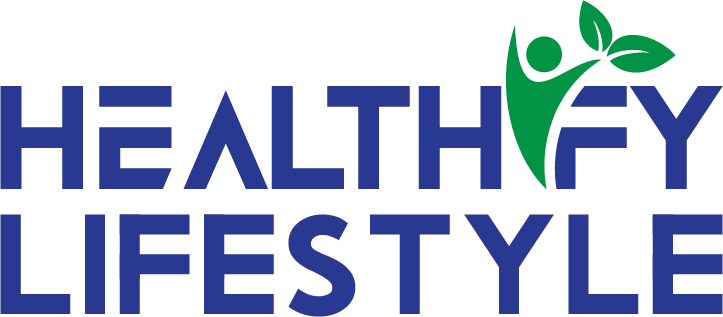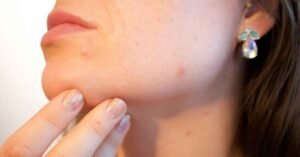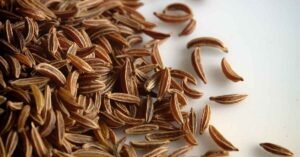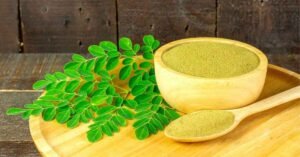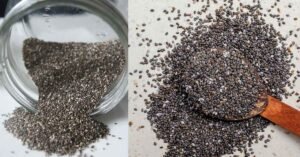
Sinus and ear pressure can disrupt your day. It’s uncomfortable and sometimes even painful. Luckily, there are remedies that can help you find relief. Whether it’s caused by a sinus infection, allergies, or a cold, these tips will ease your symptoms.
Sinus and Ear Pressure
Sinuses are air-filled spaces located in your skull. They are connected to your nasal passages and help regulate the temperature and humidity of the air you breathe. When your sinuses become inflamed or congested, they can affect your ears.
How It Happens:
- Your sinuses and ears are connected through the Eustachian tubes.
- Inflammation or blockage in the sinuses can lead to pressure changes in the ears.
- This causes discomfort, ear popping, or even temporary hearing loss.
Sinus-related ear pressure often occurs during colds, allergies, or sinus infections. Managing sinus health can significantly reduce ear discomfort.
Symptoms vs. Causes of Sinus and Ear Pressure
| Symptoms | Causes |
| Congestion | Sinus infection |
| Headache | Allergies |
| Ear popping | Eustachian tube dysfunction |
| Facial pain | Cold or flu |
10 Remedies for Sinus and Ear Pressure:
1. Steam Inhalation

Steam inhalation is a classic remedy. It works by loosening mucus in your sinuses and easing ear pressure.
How to Do It:
- Boil water and pour it into a bowl.
- Place a towel over your head and lean over the bowl.
- Inhale the steam for 10 minutes.
This simple method helps open blocked nasal passages and improves airflow.
Benefits:
- Relieves congestion.
- Soothes irritated sinuses.
- Reduces ear pressure caused by blockages.
2. Nasal Irrigation
Nasal irrigation clears out mucus and allergens. A saline rinse is safe and effective.
Steps:
- Use a neti pot or squeeze bottle.
- Mix distilled water with a saline solution.
- Pour the solution into one nostril and let it drain out the other.
This remedy reduces sinus pressure and promotes better drainage.
Benefits:
- Clears nasal congestion.
- Reduces inflammation.
- Prevents sinus infections.
3. Stay Hydrated
Drinking plenty of water thins mucus. This helps it drain from your sinuses more easily.
Tips:
- Aim for 8 glasses of water a day.
- Include herbal teas like chamomile or peppermint.
- Avoid alcohol and caffeine, as they dehydrate you.
Benefits:
- Promotes mucus flow.
- Reduces sinus pressure.
- Keeps your body hydrated for overall health.
4. Warm Compress
A warm compress can ease pain and promote sinus drainage.
How to Use It:
- Soak a clean cloth in warm water.
- Place it over your nose and forehead.
- Leave it on for 10-15 minutes.
This simple technique provides quick relief.
Benefits:
- Reduces facial pain.
- Eases sinus pressure.
- Relieves ear discomfort.
5. Use a Humidifier
Dry air can worsen sinus and ear pressure. A humidifier adds moisture to the air, which helps keep your sinuses hydrated.
Tips:
- Use it in your bedroom while sleeping.
- Clean the humidifier regularly to prevent mold growth.
- Maintain indoor humidity at 30-50%.
Benefits:
- Prevents dry nasal passages.
- Reduces sinus inflammation.
- Eases breathing.
6. Over-the-Counter Medications
Decongestants and pain relievers provide temporary relief from problem.
Options:
- Decongestants: Shrink swollen nasal tissues. Examples include pseudoephedrine and oxymetazoline.
- Pain Relievers: Reduce headaches and facial pain. Examples include ibuprofen and acetaminophen.
Precautions:
- Don’t use decongestant sprays for more than three days.
- Consult your doctor if symptoms persist.
7. Essential Oils
Essential oils like eucalyptus and peppermint can help clear nasal passages and reduce inflammation.
How to Use:
- Add a few drops of oil to a bowl of hot water.
- Inhale the steam.
- Alternatively, use a diffuser.
Benefits:
- Relieves congestion.
- Reduces inflammation.
- Promotes relaxation.
8. Chewing Gum or Swallowing
Chewing gum or swallowing helps equalize pressure in your ears. This is especially useful during flights or altitude changes.
How It Works:
- Chewing stimulates the muscles that open the Eustachian tubes.
- This allows air to flow and relieves ear pressure.
Benefits:
- Quick relief for ear discomfort.
- Prevents ear popping during travel.
9. Allergy Management
If allergies cause your sinus and ear pressure, managing them is crucial.
Steps:
- Take antihistamines to reduce allergic reactions.
- Avoid allergens like pollen, dust, or pet dander.
- Keep your living space clean and dust-free.
Benefits:
- Prevents sinus inflammation.
- Reduces pressure caused by allergies.
- Improves overall comfort.
10. Consult a Doctor
If home remedies don’t work, seek medical advice. Persistent of this problem may indicate a more serious issue.
Medical Treatments:
- Antibiotics for bacterial infections.
- Steroid nasal sprays to reduce inflammation.
- Procedures to drain sinus blockages.
When to See a Doctor:
- Symptoms last more than 10 days.
- Severe facial pain or swelling.
- High fever.
Prevention vs. Treatment Tips
| Prevention | Treatment |
| Use a humidifier | Try steam inhalation |
| Stay hydrated | Apply a warm compress |
| Manage allergies | Take OTC medications |
| Avoid dry air | Use nasal irrigation |

Conclusion
Sinus and ear pressure can be frustrating, but these remedies provide relief. Start with simple home treatments like steam inhalation and hydration. If your symptoms persist, consult a healthcare provider. Addressing the issue early ensures quick recovery and prevents complications. Stay proactive and take care of your health.
FAQs
1. What causes sinus and ear pressure?
This problem is caused by blockages in the nasal passages or Eustachian tubes. Common triggers include colds, allergies, sinus infections, and changes in altitude.
2. How can I relieve sinus and ear pressure naturally?
Try remedies like steam inhalation, nasal irrigation, using a humidifier, and applying a warm compress. Staying hydrated and chewing gum can also help.
3. When should I see a doctor for sinus and ear pressure?
See a doctor if your symptoms last more than 10 days, are severe, or include a high fever. Persistent pain or swelling may indicate a more serious issue.
4. Can allergies cause ear pressure?
Yes, allergies can lead to inflammation and mucus buildup, affecting the Eustachian tubes and causing ear pressure.
5. Is ear pressure a sign of an ear infection?
Not always. While ear pressure can occur with ear infections, it’s often due to sinus issues or Eustachian tube dysfunction.
6. How do I know if my ear pressure is from sinus issues?
If you experience ear fullness, popping, or discomfort alongside nasal congestion, headaches, and facial pain, it could be related to sinus pressure.
7. Can sinus pressure lead to ear infections?
Yes, untreated sinus issues can cause fluid to build up in the ear, leading to infections or further complications like earaches or muffled hearing.
8. Is it safe to use over-the-counter remedies for sinus and ear pressure?
Over-the-counter medications like decongestants and pain relievers are generally safe for most people but should be used as directed. If symptoms persist, consult a healthcare provider.
9.Can sinus pressure affect hearing?
Yes, sinus pressure can cause temporary hearing loss or muffled hearing due to blocked Eustachian tubes, which connect the sinuses to the ears.
10. What natural remedies help relieve sinus and ear pressure?
Some natural remedies include steam inhalation, saline nasal sprays, using a humidifier, and drinking plenty of fluids to thin mucus.
11. How long does sinus and ear pressure last?
Sinus and ear pressure usually resolve within a few days to a week with proper treatment. If symptoms persist or worsen, medical attention is recommended.
12. Can sinus and ear pressure be a sign of something more serious?
If symptoms last for more than 10 days, worsen, or are accompanied by severe pain, fever, or hearing loss, it could indicate a more serious condition like a chronic infection or other underlying issues.
13. Are there exercises to relieve sinus and ear pressure?
Yes, gentle exercises like the “Valsalva maneuver” (gently blowing with the nose pinched) can help relieve ear pressure. However, it should be done cautiously to avoid injury.
14. Can allergies contribute to sinus and ear pressure?
Absolutely! Allergies can inflame the sinuses, leading to blockages and increased pressure in both the sinuses and ears.
